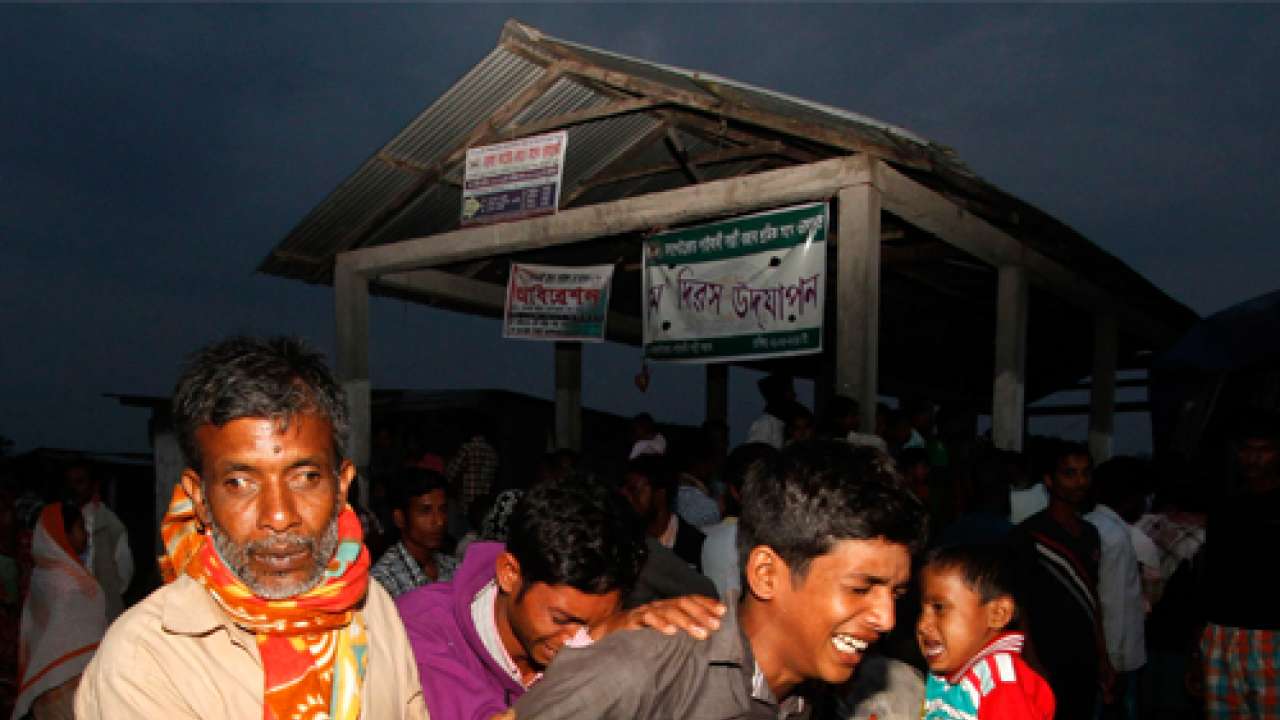
Looking at the deplorable developments in Assam over the last two-three days, I remembered the words of Pramod Bodo, the leader of the All Bodo Students Union (ABSU), when I met him in Kokrajhar along with my teachers and fellow students during a study trip to Assam a year and a half ago. “All tribals are unhappy. We are not treated as part of Assam,” he had grieved.
The demand for Bodoland has roots in the 1960s. In January 1967, then Prime Minister Indira Gandhi said the Centre had a policy to reorganise Assam based on a federal structure. On February 27, 1967, the Plains Tribal Council of Assam was formed. It raised the demand for a separate state named Udayanchal. However, the party failed to achieve anything and remained barren. After 17 years, the ABSU took up this issue in 1986 and the demand for Bodoland was born. The map of Bodoland overlaps the districts of Kokrajhar, Baksa, Chirang and Udalguri in Assam, which are administered by the Bodoland Territorial Council (BTC).
One of the reasons behind the demand for Bodoland is the influx of Bengali Muslims from Bangladesh. The Bodos claim they are the original inhabitants of the region but have been pushed, over the centuries, initially by the Assamese, who belong to the Ahom kingdom, and later by Bengali Muslims. Consequentially, Bengali Muslims now dominate the areas in Assam where the Bodos were once the predominant inhabitants. Therefore, in order to save their culture, language, and identity, the demand for Bodoland has grown stronger. The Bodos were optimistic that most of these problems would be resolved with the advent of the BTC, which was created under the sixth schedule provision of the constitution in 2003, but the members of the ABSU said the BTC has limited power to fulfil the aspirations of Bodos.
However, in BTC council seats, 30 of the 40 are reserved for Bodos, five for the government and five are open. The deputy commissioner of Chirang, Puru Gupta, said that apart from three programs: rehabilitation, border issues and Members of Parliament Local Area Development (MPLAD) Scheme, everything is handled by the BTC. The deputy commissioner has a budget of merely Rs 15-20 crore.
Therefore, the Bodos are not happy with Bengali Muslims being a majority in their land, and the Bengali Muslims are disheartened because the minority rules over the majority. The entire conflict is about identity: the Bodos trying to protect, while the Muslims endeavouring to establish theirs. As a result, the BTC administered area is always under a shadow of violence, as we once again saw two days ago.
However, according to a member of a Muslim relief camp in Chirang, the Bodos and Muslims had been on good terms until the BTC came into being. He claimed, “We used to do share-cropping where the Muslims worked on the land owned by the Bodos and the profit was shared. But the BTC forced the issue and a time came when the Bodos made Muslims do the hard work and then refused to share the profits.”
Having said that, the Bodos have every right to be disillusioned with the government. When we visited the Bodo relief camp in the same district, they said the Muslims affected by the 2012 riots were given compensation. But they were aided by various NGOs. The government has categorised the land as ‘Khas land’, which cannot be owned, and ‘Patta land’, which can be. Many of the Bodos, accidently and unfortunately, fell under ‘Khas land’ which deprived them of any compensation. Now the rummy thing is that they have been living there for centuries, when documents and paperwork was an unknown phenomenon and the break-up of land was done in recent times. Moreover, ‘The Tribal Belt and Block’ was promised to the Bodos, which would protect their land. It forbade any outsider to settle down on that belt. Needless to say, the implementation has been poor and that has lead to the Bodos being more aggressive.
There were talks of verification of the population and if the Bodos were found to be more than 50%, there was a remote chance of at least considering the demand for Bodoland. But there are no two opinions about Bodos not being more than 30%. Therefore, the conflict is not likely to stop.
Police and government too, have been lethargic in curtailing the outbursts in this region. Aakar Patel in a recent interview said the British have left us with such sound law and order that any riot, if acted upon promptly, can be stalled within 48 hours. But when the ominous riots broke out in Kokrajhar in 2012, the police did not act. A renowned social worker in Kokrajhar said, “It seemed like a conspiracy against Muslims. We had informed the police about the movements of the Bodos.” When asked about the possible golden mean, he had said there is no point in harping about what has happened in the past as the insurgents cannot be recognised and deported. However, care needs to be taken to prevent further migration.
UG Brahma, a former MP and a writer, had said the only way this conflict can be pacified to a certain extent is by implementing strict land protection act. Migration and encroachment are the core reasons behind this revolt.
Nonetheless, strong political will and social commitment can solve this conundrum. But who will take the initiative when vote bank politics is being played across the country? Perhaps another way to halt migration from Bangladesh is to have a prosperous Bangladesh. However, that seems like a long shot.
Parth MN works with the LA Times, and tweets at @parthpunter.